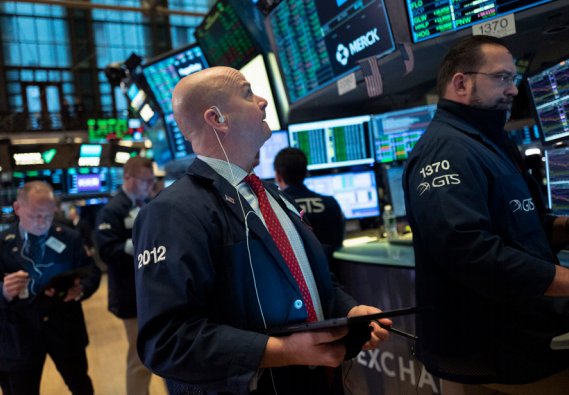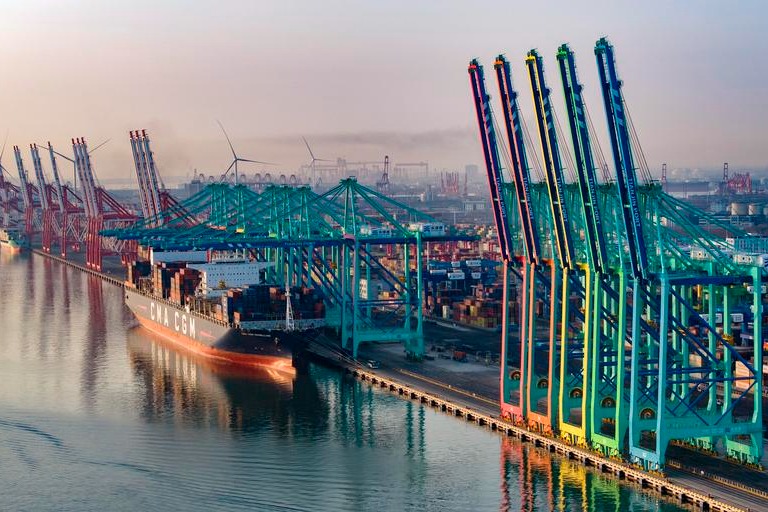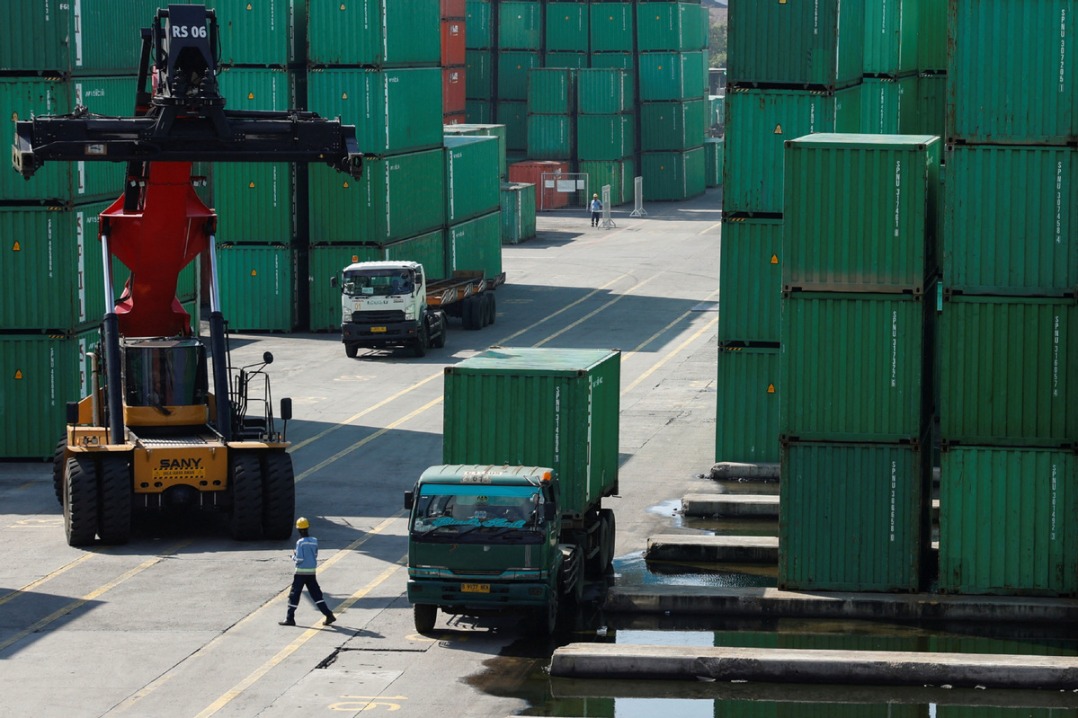Market wipes out gains made during Trump's time in office


US stocks plunged Wednesday, closing below 20,000 for the first time in about three years and erasing nearly all gains made during President Donald Trump's time in office.
On December 23, 2019, Trump tweeted that the Dow Jones Industrial Average was up 55 percent since his election and promised "the best is yet to come".
But the 30-stock blue chip index is nearing its close of 19,732.40 on January 19, 2017, the day before Trump took office.
On Wednesday, the Dow plunged 1,338.46 points, or 6.30 percent, and closed at 19,898.92. The S&P 500 closed at 2,398.10, down 131.09 percent, or 5.18 percent. The Nasdaq Composite lost 344.94 points, or 4.70 percent, and closed at 6,989.84.
There will be no immediate turnaround as investors await Congressional action on the government's planned $1 trillion stimulus package intended to counter fears about an economic downturn caused by the coronavirus. The money then must reach its intended recipients and be used wisely before the economy responds.
The Wall Street Journal reported that many investors "sold nearly everything they could in the most all-encompassing market drawdown since the darkest days of the 2008 financial crisis".
Cash won't lose value and can be invested in short-term notes and the strategy appears to be to cut losses until the market rebounds.
The market remains volatile. The S&P 500 has risen or fallen at least 4 percent a day through Wednesday's close. The index is down about 30 percent from its recent high.
Well-known Dow components pulled the blue chip index down. United Technologies fell 14.55 percent. Boeing, plagued by the continued grounding of its top-selling 737 MAX after two fatal crashes, lost 17.96 percent. American Express fell 14.83 percent.
General Motors, Ford and Fiat Chrysler plan to shut down US production amid fear of the spreading coronavirus, also called Covid-19. Ford said it will work with the United Auto Workers Union about plans to halt the spread of the virus and restarting production when the danger has abated. General Motors lost 15.60 percent. Ford closed down 11.65 percent. Fiat Chrysler slid 9.33 percent.
Oil, a proxy for future economic activity, was hammered. US crude oil futures fell 16.70 percent Wednesday to $22.42 a barrel, its lowest level since 2003. A price war between Russia and Saudi Arabia has flooded the market and also hurt prices.
Copper futures fell 6.46 percent.
The commodities are considered proxies for future economic activity because each is used extensively in industrial economies. Falling prices suggest traders see economic stagnation in the short-term.
Gold fell 2.14 percent, and silver lost 3.80 percent. Both are typically safe havens during market turmoil.
"When even silver and gold are getting crushed, that's a panicked drawing of liquidity," Rob Arnott, founder of California-based investment firm Research Affiliates, told The Wall Street Journal. "In the US, you can't find toilet paper anywhere: This is the capital markets equivalent of that."
Yield on the benchmark 10-year US Treasury Bond edged up to 1.188 percent from 0.994 percent Tuesday. Investors seek safety amid the stock market's turmoil.
"Volatility is not over yet," Tom Essaye, founder of The Stevens Report, said in a research note. "We also need to see more progress on the (pharmaceutical) side of things, and above all else we need to see the growth rate of the virus to peak in the coming weeks."
In a tweet, Bill Ackman, founder of Pershing Square Capital Management, said:
"Mr. President, the only answer is to shut down the country for the next 30 days and close the borders. Tell all Americans that you are putting us on an extended Spring Break at home with family. The moment you send everyone home for Spring Break and close the borders, the infection rate will plummet, the stock market will soar and the clouds will lift."
The market rallied 1,048 points Tuesday on news of a $1 trillion stimulus package proposed by US President Donald Trump that included financial relief to small businesses, the airline industry, direct payments to Americans and extending the federal tax deadline 90 days without interest or penalty. It was catnip for the market, but couldn't resolve the underlying problem: No one knows the extent of Covid-19's spread or how long it will persist.
Treasury Secretary Steven Mnuchin told Republican senators that unemployment could hit 20 percent if Congress doesn't enact the proposed stimulus package, a 471 percent surge from the current rate of 3.5 percent. He offered no evidence to back the claim.
The Federal Reserve increased efforts to help companies secure short-term funding by announcing a plan to purchase commercial paper — short-term unsecured promissory notes issued by companies to cover bills. Earlier, the Fed announced a one percent cut in interest rates to reduce the cost of credit and encourage spending and investment. The Fed also announced plans for a $700 billion quantitative easing, or pumping additional cash into the money supply.
"Signs are that the pandemic will be brought under control and that the economy will get enough support to weather the storm," Brad McMillan, chief investment officer at Commonwealth Financial, told CNBC.
"Make no mistake, there will be damage. But from a market perspective, the question will be whether the damage is greater than the markets now expect, or less."
Peter Earle, an economist at the American Institute for Economic Research, a think tank in Great Barrington, Massachusetts, faulted Trump and other politicians for causing much of the market's turmoil.
"The current administration seems not to have learned from countless previous Administrations that news which is likely to foment volatility is better delivered after market hours. Oval Office addresses have typically been made at 8 p.m. (eastern time) to maximize viewership, not interrupt dinners or after-school activities and not unnecessarily roil markets.
"The real history of this crash is that the market began to fall exactly as the political class began to panic, speak of shutdowns, demand flight cancellations (and) talk of closing up. Whatever you think about the virus threat, and even if you think all this is justified in the name of stopping its the spread, let's not be confused about what drove this disaster from the beginning: the fear that politics would attack commercial society at its root."































